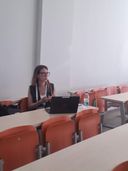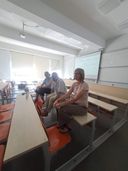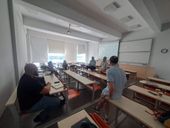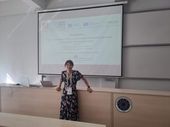Search
Project management in cross-border initiatives
Practices, challenges and opportunities
Roundtable details
This roundtable, organized within the framework of the AESOP World Congress 2025 in Istanbul on July 10, 2025, focuses on the role of project management in addressing the challenges faced by EU cities, with a particular emphasis on cross-border urban projects. As cities face pressing issues like climate change, energy transition, digital transformation, and sustainability, effective project management plays a key role in fostering collaboration, optimizing resource use, and achieving long-term goals. Project management frameworks, based on global best practices, provide structured approaches, methods, models, and tools for planning, executing, and completing projects efficiently within defined timeframes and budgets. Frameworks such as Agile, PRINCE2, and PMBOK support effective resource management, risk handling, stakeholder engagement, and team collaboration. They include planning and monitoring tools, such as Gantt charts, project dashboards, and key performance indicators, to ensure tasks are scheduled, tracked, and adjusted as needed. By using these frameworks and tools, projects maintain clear timelines, monitor progress, and address complex challenges while delivering practical, sustainable results. The discussion highlights how management practices bridge gaps between stakeholders, align diverse interests, and ensure that urban initiatives deliver sustainable and equitable outcomes. From the project management perspective, the discussion emphasizes specific tools and approaches that best meet the needs of EU cross-border projects. It also explores the complexities of managing urban transformation projects in the EU—for example, how cities navigate various regulatory frameworks, cultural differences, and competing priorities. Topics include overcoming governance fragmentation, addressing funding uncertainties, and driving innovation to build resilient and inclusive urban spaces. Key topics for discussion include:
- Best practices in managing cross-border projects
- Governance, funding, and stakeholder coordination challenges
- The use of project management tools and methods to improve project outcomes
- Lessons from successful EU urban projects and partnerships
Contributors
- Maros Finka, Slovak University of Technology in Bratislava, SPECTRA Centre of Excellence EU, Slovakia
- Milan Husar, Slovak University of Technology in Bratislava, SPECTRA Centre of Excellence EU, Slovakia
- Eva Purkarthofer, Aalto University, Finland
- Anna Growe, Institutsleitung Institut für Urbane Entwicklungen, Germany
- Karina Pallagst, RPTU Rheinland-Pfälzische Technische Universität, Germany
- Oleksii Yehorchenkov, Slovak University of Technology in Bratislava, SPECTRA Centre of Excellence EU, Slovakia
- Flora Krasniqi, Universiteti Polis, Albania
- Annalisa Rollandi, The University of Applied Sciences and Arts of Southern Switzerland (SUPSI), Switzerland
- Sylwia Dołzbłasz, University of Wrocław, Poland
- Elona Karafili, Universiteti Polis, Albania
Agenda of the Roundtable
Welcome and Introduction Speaker: Prof. Nataliia Yehorchenkova (Slovak University of Technology in Bratislava)
- Welcome and outline of the roundtable
- Key objective: To position project management as a distinct and necessary field of knowledge within urban development—particularly in the context of complex, cross-border initiatives.
Contributors’ Reflections: Practice-Based Insights Each contributor had a 2–3 minute reflection focused on their experience with cross-border urban initiatives, with emphasis on project management aspects:
- What worked—and what didn’t—in managing complexity
- Tools, approaches, or lessons from managing across borders
- Reflections on capacity gaps or structural barriers
Moderated Discussion: The Specifics of Project Management in Cross-Border Urban Projects Moderator: Prof. Nataliia Yehorchenkova Guiding Questions:
- Why should project management be treated as a separate domain of expertise in urban development?
- What unique features distinguish project management in cross-border projects (legal, institutional, cultural, financial)?
- Which frameworks or methodologies (PMBOK, PRINCE2, Agile, etc.) are applicable—and how should they be adapted?
- What practical and academic gaps exist in training, application, or institutional support?
Audience Interaction
- Invite participants to share challenges or solutions
- Stimulate dialogue around the professionalization of project management in planning practice
- Encourage questions on methodologies, cooperation, or skills development
Wrap-Up and Closing Reflections Speaker: Prof. Nataliia Yehorchenkova
- Recap of key insights
- Final statement: “Cross-border projects are more than policy tools—they are complex undertakings that require highly skilled coordination, strategic alignment, and methodological clarity. Recognizing project management as a distinct and professional knowledge area is essential to improving the effectiveness and impact of urban development initiatives across Europe. It’s time to embed project management deeply into the education, practice, and institutional fabric of planning.”



